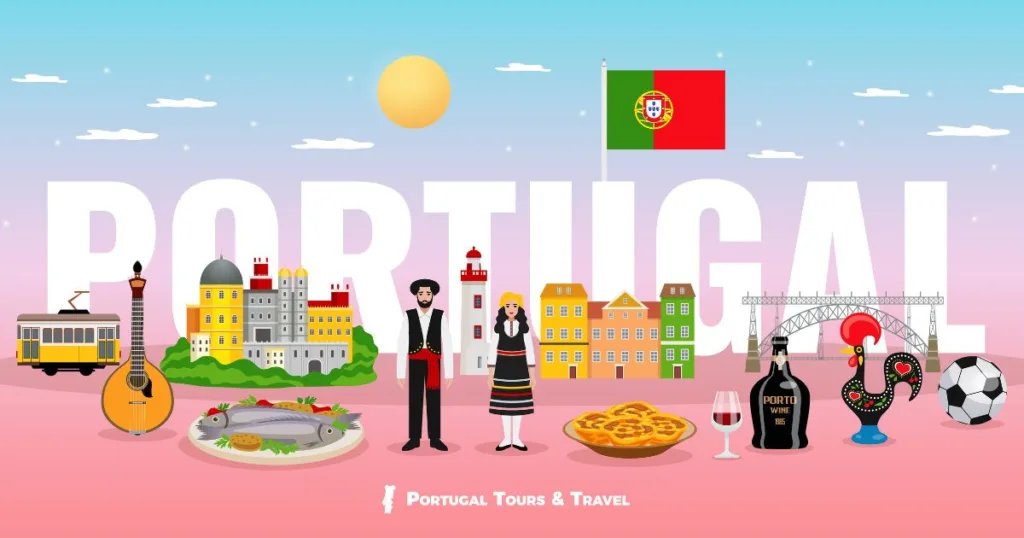Most Popular Top 10 Places To Visit In Portugal
Portugal, a country with a rich history, stunning landscapes, and vibrant culture, offers a plethora of experiences for travellers. From the magical Douro Valley to the sun-kissed beaches of the Algarve, Portugal’s diverse landscapes cater to all tastes. Whether you are a history buff, a nature lover, or a foodie, Portugal has something special for you. In this extensive guide, we will explore the top 10 must-visit destinations in Portugal, promising you an unforgettable journey through one of Europe’s most enchanting countries.
History of Portugal
The history of Portugal is a rich and varied tapestry, weaving together the threads of ancient civilizations, maritime exploration, and political evolution. This comprehensive overview will explore the key events and influences that have shaped Portugal into the nation it is today.
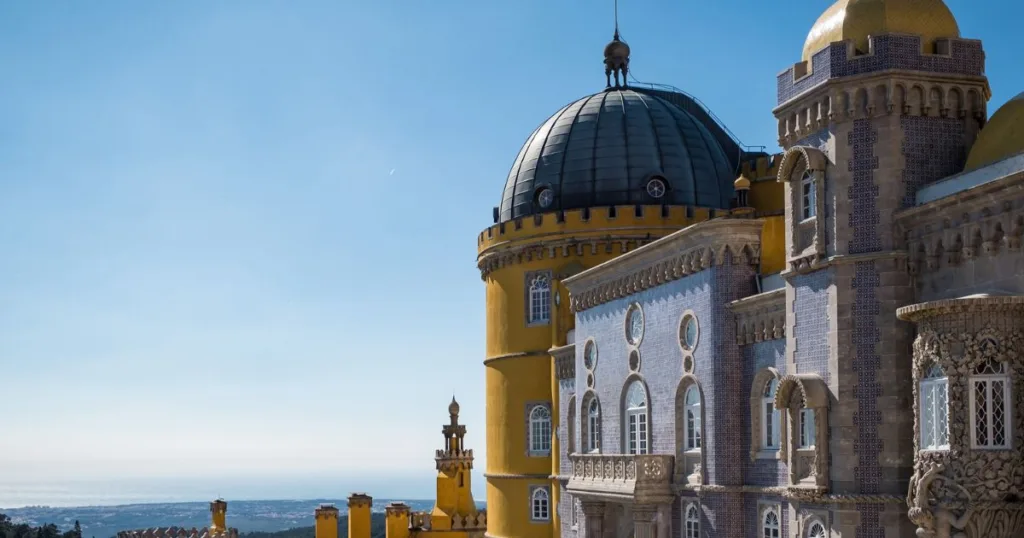
Pre-Roman and Roman Period
The story of Portugal began long before it became a defined country. The region was inhabited by various pre-Celtic and Celtic peoples, such as the Lusitanians, Gallaeci, and Cynetes, known for their vibrant cultures and resistance to invasions. The Romans arrived in the Iberian Peninsula during the Second Punic War in the 2nd century BC, eventually establishing the province of Lusitania, covering most of modern-day Portugal. Roman rule brought roads, bridges, and cities, embedding the foundations of Roman culture and language into the region.
Germanic and Moorish Rule
As the Roman Empire weakened, Germanic tribes such as the Suebi and Visigoths invaded and established kingdoms in the peninsula during the 5th and 6th centuries. In 711 AD, the Moors, Muslim peoples from North Africa, conquered the Visigothic Kingdom, introducing Islamic culture, science, and technology to the Iberian Peninsula. The Christian Reconquest, or Reconquista, began in the early Middle Ages, gradually pushing the Moorish rule southward.
Formation of the Portuguese Kingdom
The County of Portugal emerged as a vassal of the Kingdom of León in the 12th century. Afonso Henriques proclaimed himself Prince of Portugal in 1139 and was recognized as the first King of Portugal in 1143, after the Battle of São Mamede. The Treaty of Zamora (1143) established Portugal’s independence from León. The following centuries saw the expansion of Portuguese territories to the south, culminating in the capture of the Algarve, completing the Reconquista.
Age of Discoveries
The 15th and 16th centuries marked Portugal’s Age of Discoveries, initiated by Prince Henry the Navigator. This era saw Portuguese explorers push across unknown seas, discovering routes to India, Brazil, Africa, and Asia, establishing a vast maritime empire. Figures like Vasco da Gama and Ferdinand Magellan played crucial roles. This period brought immense wealth and knowledge to Portugal, making it a leading world power.
The Iberian Union and Restoration
The death of King Sebastian at the Battle of Alcácer Quibir in 1578 led to a dynastic crisis, resulting in the Iberian Union under Spain’s Philip II in 1580. This 60-year period saw Portugal’s autonomy diminished, though it retained its empire. The Portuguese Restoration War (1640-1668) ended the union, with Duke John of Braganza becoming King John IV of Portugal.
18th Century to Early 20th Century
The 18th century was marked by the reign of King John V, who used wealth from Brazilian gold to embark on ambitious architectural projects, exemplified by the Mafra Palace. The Marquis of Pombal modernized the country after the 1755 Lisbon earthquake. In the early 19th century, the Napoleonic Wars led the royal family to flee to Brazil, significantly impacting Portuguese society. The return of the royal family from Brazil initiated a period of liberal reforms, including the Liberal Revolution of 1820 and the Civil War (1828-1834), leading to a constitutional monarchy.
The First Republic and the Estado Novo
The monarchy was abolished in 1910, ushering in the Portuguese First Republic, characterized by political instability and economic issues. António de Oliveira Salazar rose to power in 1932, establishing the Estado Novo (“New State”), a corporatist authoritarian regime that lasted until the Carnation Revolution in 1974. This peaceful coup ended the dictatorship, initiated democratic reforms, and led to the decolonization of Portuguese Africa by 1975.
Modern Portugal
Since the Carnation Revolution, Portugal has become a stable democracy, joining the European Economic Community (now the European Union) in 1986, which has helped modernize its economy and infrastructure. The country has played an active role in international affairs, including peacekeeping missions and global diplomacy.
Portugal’s history is a narrative of resilience and adaptation, from ancient settlers through periods of great exploration and expansion, to overcoming internal and external challenges. Its rich cultural heritage reflects the diverse influences that have shaped it over millennia, making Portugal a unique and captivating country with a profound legacy on the world stage.
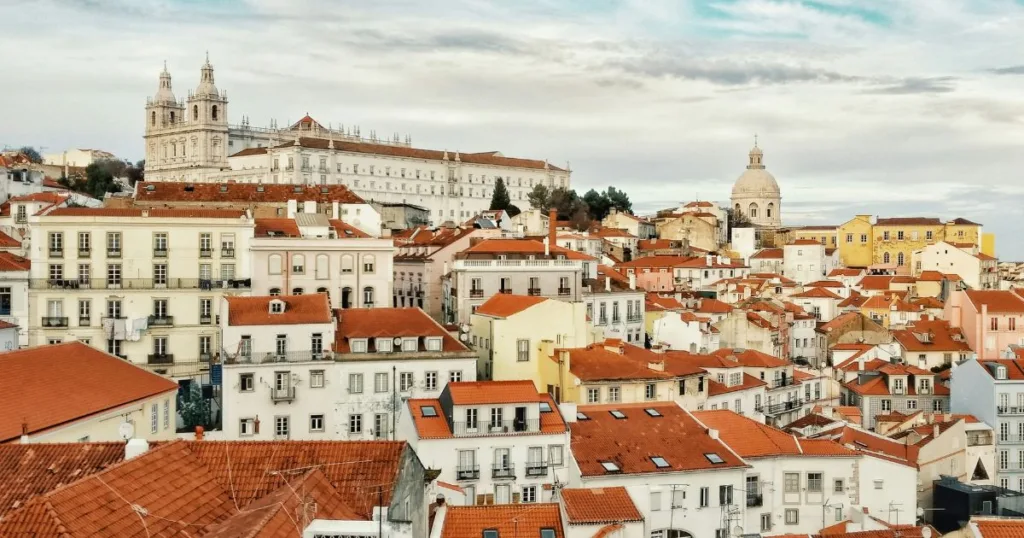
Popular Top 10 Places To Visit In Portugal in 2024
1. Lisbon: The City of Seven Hills
Lisbon, the capital of Portugal, is a city where the old charms meet modern vibrancy. Famous for its historic neighbourhoods, such as Alfama and Bairro Alto, Lisbon offers a mix of traditional Fado music, stunning views from its seven hills, and a culinary scene that is as diverse as it is delicious. Don’t miss the chance to ride the iconic Tram 28, visit the Jerónimos Monastery, and taste the famous pastéis de nata at Pastéis de Belém.
Lisbon is not just a city but an experience that encapsulates the heart of Portugal. The Alfama district, one of the oldest, is a maze of narrow streets, echoing with Fado music and offering breathtaking views from the Santa Luzia viewpoint. The Belém district tells the story of Portugal’s Age of Discoveries, with monuments like the Tower of Belém and the Monument to the Discoveries standing as proud reminders of the past. For contemporary culture, the LX Factory, a vibrant creative hub in a former industrial complex, showcases Lisbon’s modern side.
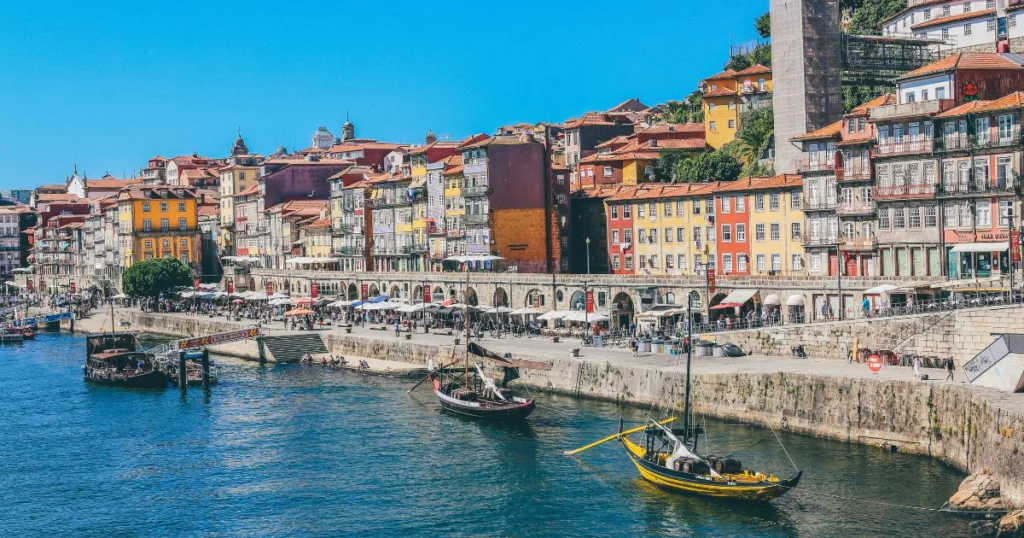
2. Porto: The Invincible City
Porto, Portugal’s second-largest city, is renowned for its majestic bridges, the historic Ribeira district, and, of course, its port wine. A visit to the cellars of Vila Nova de Gaia for a wine tasting is a must. The city’s dramatic coastline, baroque churches, and the stunning São Bento Railway Station, with its intricate azulejos (tiles), offer a glimpse into Portugal’s soul.
Porto’s charm lies in its ability to blend tradition with innovation. The city’s historical centre, a UNESCO World Heritage site, is a testament to its rich past, while the contemporary art scene is thriving, with spaces like the Serralves Museum drawing international attention. The Douro River is not just a waterway but Porto’s lifeline, with the Ribeira district’s colourful houses adding vibrancy to its banks. For a taste of local life, the Bolhão Market offers an array of fresh produce and traditional goods.
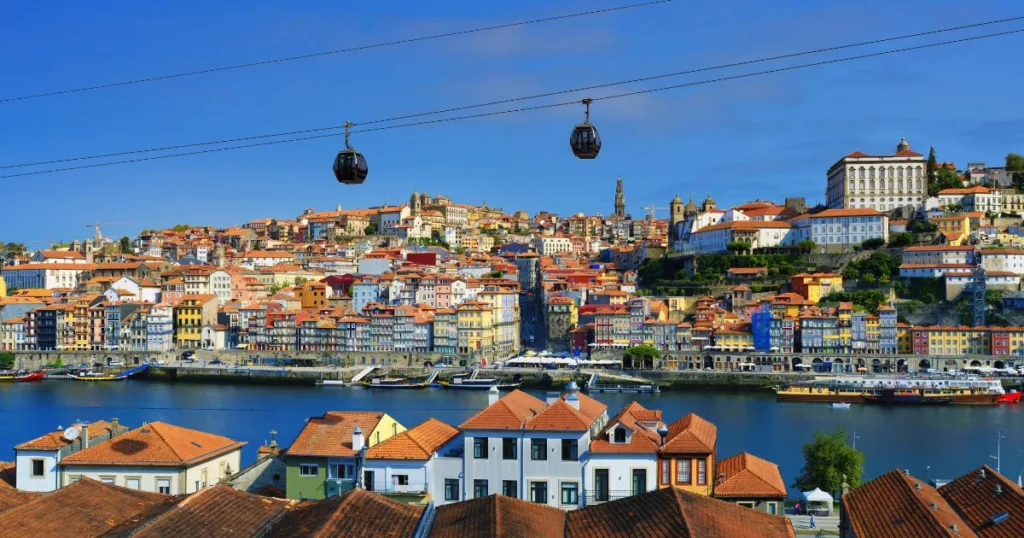
3. Sintra: A Fairy-Tale Town
Nestled within the hills of the Serra de Sintra, this town is like stepping into a fairy tale. The National Palace of Pena, with its vivid colours and romantic architectural styles, is the highlight. Equally mesmerizing are the Quinta da Regaleira and the Moorish Castle, set amidst lush forests that invite exploration and wonder.
Sintra’s mystical hills are home to palaces and estates that seem to emerge from the pages of a storybook. The Palácio Nacional de Sintra, in the town centre, is known for its twin chimneys and extensive tilework. Beyond its architectural wonders, Sintra’s landscape is part of the Sintra-Cascais Natural Park, offering countless trails through its lush forests and rugged coastlines, making it a haven for nature enthusiasts.
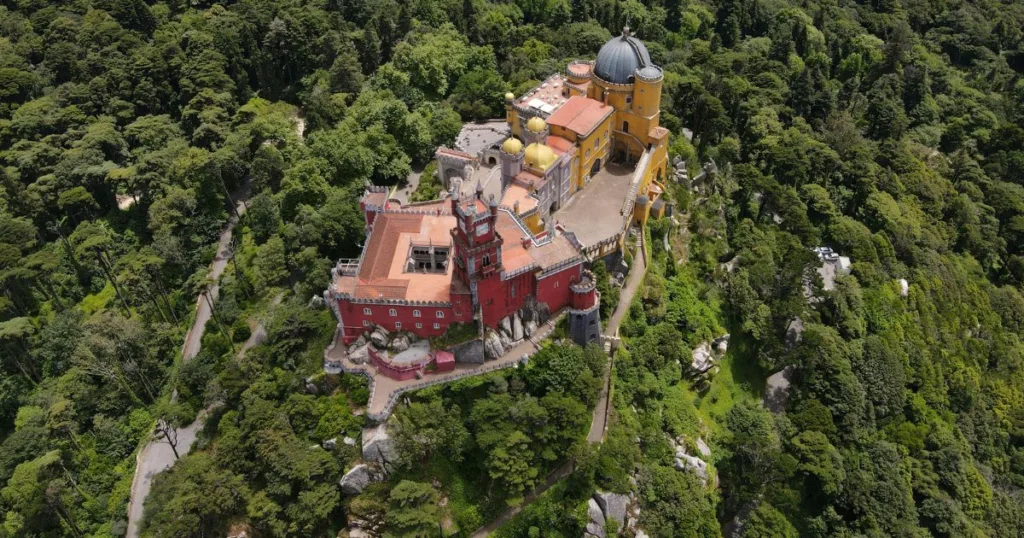
4. Algarve: A Coastal Paradise
The Algarve region is synonymous with breathtaking cliffs, golden beaches, and turquoise waters. Towns like Lagos, Faro, and Albufeira are perfect bases for exploring the coastline, engaging in water sports, or simply enjoying the Mediterranean lifestyle. The Benagil Sea Cave and the Cape of Saint Vincent are natural wonders that cannot be missed.
The Algarve’s appeal extends beyond its famous beaches. The region’s historical side is showcased in towns like Silves, with its red sandstone castle, and Tavira, known for its Roman bridge and traditional salt pans. The Ria Formosa Natural Park is a unique coastal lagoon system that is a bird watcher’s paradise, highlighting the Algarve’s environmental diversity.
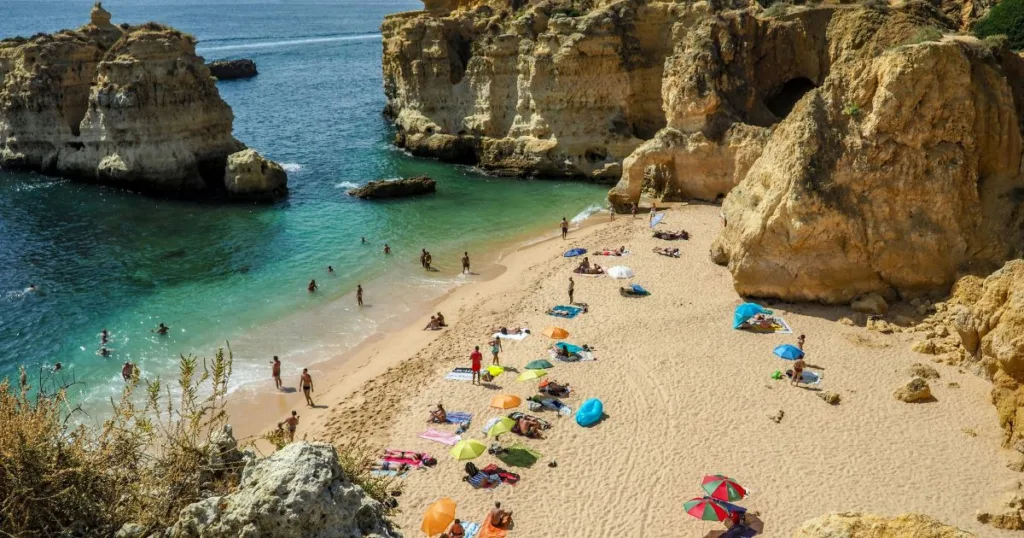
5. Douro Valley: The Heart of Wine Country
The Douro Valley, a UNESCO World Heritage site, is the oldest demarcated wine region in the world. The landscape is a stunning tapestry of terraced vineyards, winding rivers, and quaint villages. A river cruise or a scenic train ride offers panoramic views of this breathtaking region, and visiting the local Quintas (wine estates) for tastings is a delightful experience.
Exploring the Douro Valley is a sensory journey. The region’s beauty is matched by the quality of its wines, especially the world-renowned Port wine. The landscape, characterized by terraced vineyards, is best appreciated through a train ride along the Douro line, where the connection between the land and its produce is palpable. The small towns and villages, like Peso da Régua and Pinhão, offer a glimpse into rural Portuguese life.
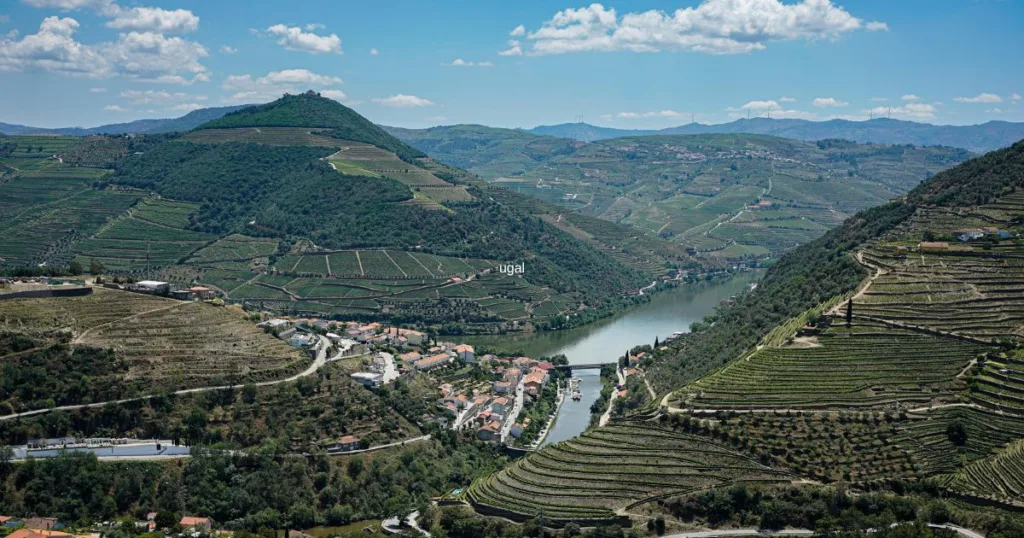
6. Coimbra: A City of Knowledge
Coimbra, home to one of the oldest universities in Europe, radiates charm and history. The university’s Joanina Library is a baroque masterpiece and the city’s medieval streets and cathedrals beckon exploration. The ancient ruins of Conímbriga, just outside the city, offer a glimpse into Portugal’s Roman past.
Coimbra’s university is not just an educational institution but a cultural cornerstone. The city’s youthful energy is balanced by its historical depth, with landmarks like the Old Cathedral and the Monastery of Santa Cruz. The nearby Roman ruins of Conímbriga are among the best-preserved in Portugal, offering insight into the country’s ancient past.
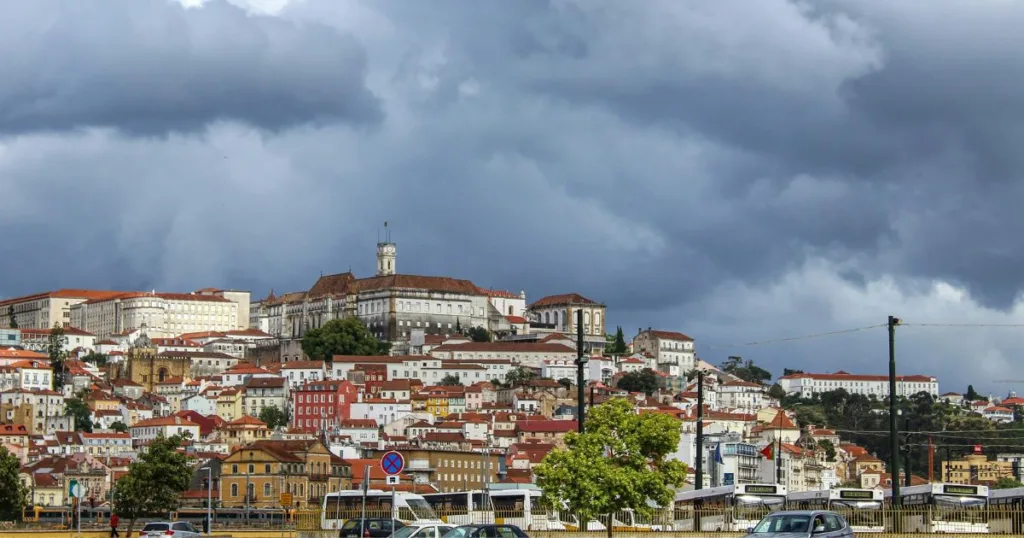
7. Madeira: The Island of Eternal Spring
Madeira, an archipelago in the Atlantic, is known for its lush landscapes, unique levada walks, and the vibrant city of Funchal. The island’s botanical gardens, volcanic pools, and mountainous terrain make it a paradise for nature lovers. Madeira is also famous for its namesake wine and the colourful Flower Festival in spring.
Madeira’s landscape is dramatically diverse, from the high peaks of Pico Ruivo and Pico do Areeiro to the peaceful Laurisilva forest, a UNESCO World Heritage site. The island’s cultural fabric is woven with traditions, evident in its embroidery, wicker crafts, and the lively annual Carnival. Funchal, the capital, is a blend of the old and new, with the Farmers’ Market (Mercado dos Lavradores) being a focal point for experiencing local life.

8. Azores: A Natural Wonder
The Azores, a group of nine volcanic islands, are a haven for outdoor enthusiasts. São Miguel, the largest island, is known for its hot springs, crater lakes, and verdant valleys. Whale watching, diving, and hiking are just a few activities that the Azores offer. The islands’ commitment to sustainable tourism makes them a pristine destination for eco-conscious travellers.
Each island in the Azores archipelago offers unique experiences. São Miguel, the “Green Island,” is known for the Sete Cidades and Furnas valleys. Terceira’s historical significance is evident in Angra do Heroísmo, a UNESCO World Heritage city. Pico is a haven for wine lovers, with its UNESCO-protected vineyards. The Azores’ commitment to sustainability makes it an exemplary destination for responsible tourism.
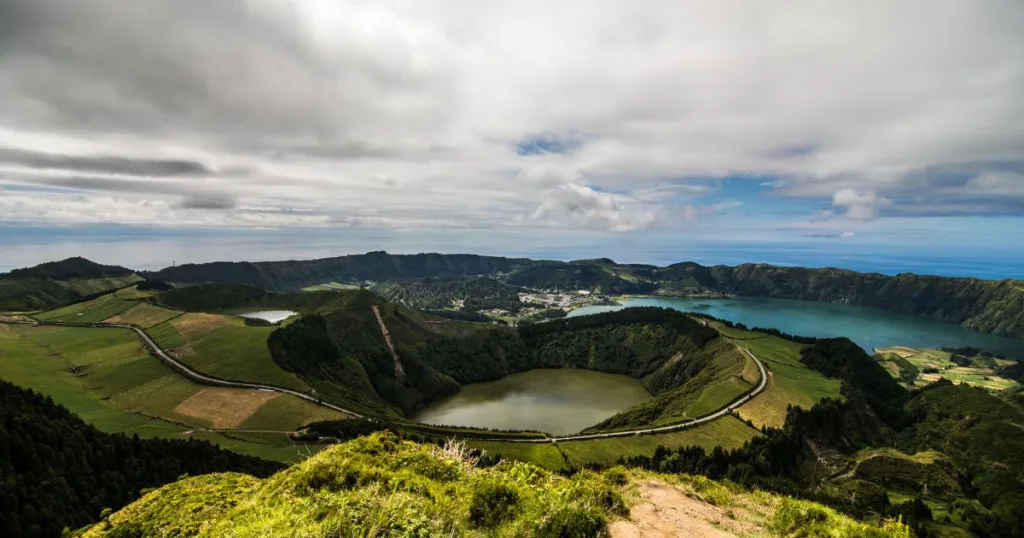
9. Óbidos: A Medieval Gem
Óbidos, a small town encircled by ancient walls, transports visitors back in time. Its cobbled streets, traditional houses, and the impressive Óbidos Castle create a medieval atmosphere. The town is also known for its cherry liqueur, Ginjinha, often enjoyed from a chocolate cup.
Walking through Óbidos feels like a journey through time. The town’s medieval festival brings its history to life, with jousting tournaments and market stalls. Beyond its walls, the Obidos lagoon offers a tranquil escape, with opportunities for birdwatching and leisurely walks. The town’s literary side is celebrated through its numerous bookshops and the annual International Literary Festival.
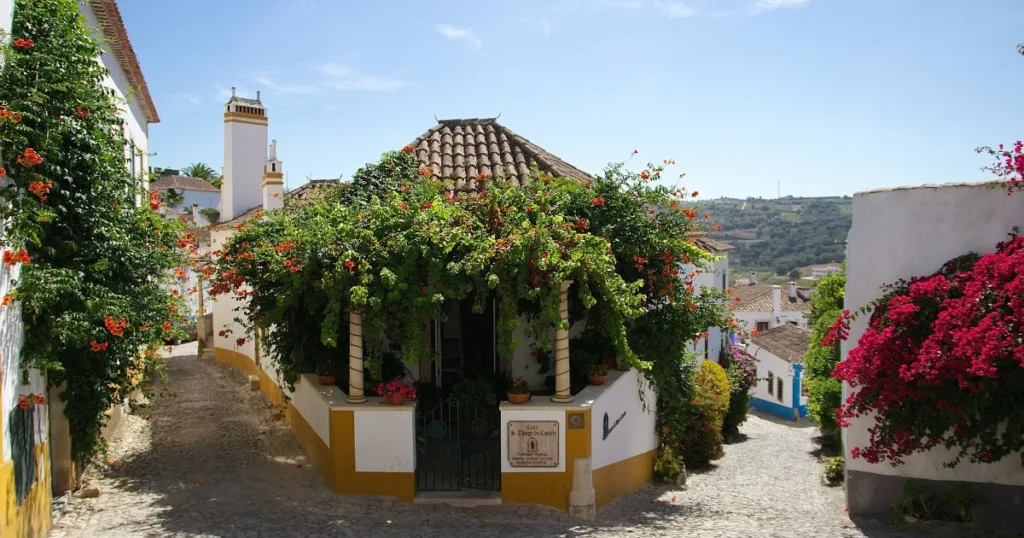
10. Évora: A History Enthusiast’s Dream
Located in the Alentejo region, Évora is a UNESCO World Heritage site, rich in Roman and medieval heritage. The Roman Temple of Évora and the eerie Chapel of Bones are must-visit landmarks. The city serves as a gateway to the Alentejo, with its rolling hills, cork forests, and fortified towns.
Évora’s Roman Temple, often referred to as the Temple of Diana, stands as a symbol of the city’s layered history. The city’s architectural timeline spans from Roman ruins to Renaissance palaces and Gothic churches. The surrounding Alentejo region, with its rolling plains and vineyards, complements Évora’s historical richness, offering a taste of Portugal’s rural beauty and tranquillity.
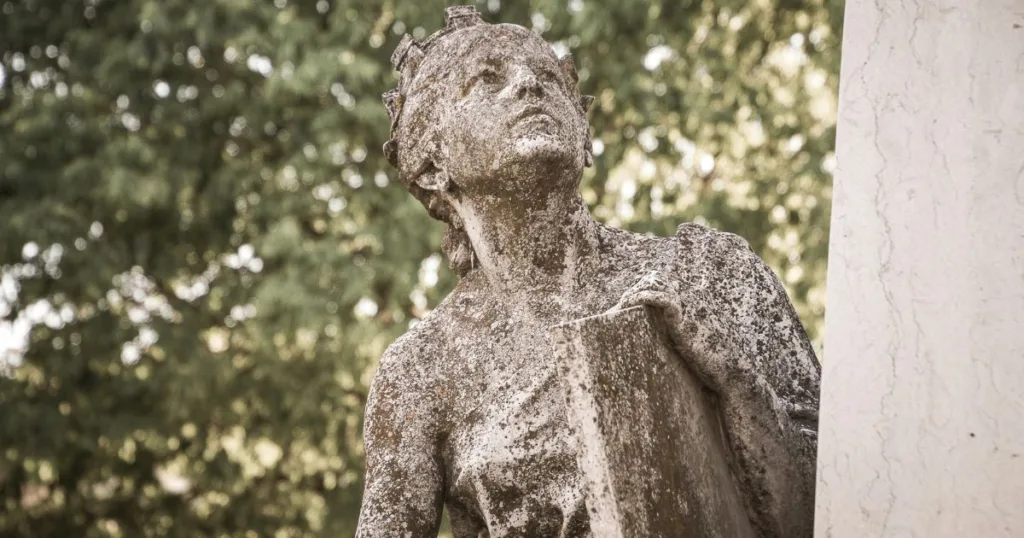
Why Travel to Portugal
Portugal offers a unique blend of history, culture, and natural beauty. Each destination on this list provides a distinct experience, from the urban sophistication of Lisbon and Porto to the natural wonders of the Azores and Madeira. Whether you’re sipping port wine in the Douro Valley, exploring the alleys of Sintra, or relaxing on the beaches of the Algarve, Portugal promises an adventure that is as diverse as it is unforgettable.
As you plan your trip to Portugal, remember that the true essence of the country lies in its people, their traditions, and the stories etched into the landscapes. Take the time to immerse yourself in the local culture, taste the cuisine, and connect with the heritage that makes Portugal a captivating destination. Boa viagem!

Religion in Portugal
Portugal is traditionally a Catholic country, and Catholicism has played a pivotal role in its history and culture. The Portuguese Constitution guarantees freedom of religion, and contemporary Portugal is diverse in terms of religious beliefs, but Catholicism remains the dominant faith. Significant religious events and festivals, such as Semana Santa (Holy Week) and the pilgrimages to Fátima, where the Marian apparitions were reported in 1917, reflect the depth of religious sentiment in the country. Other religions practised in Portugal include various Christian denominations, Islam, Judaism, Hinduism, and Buddhism, reflecting a growing multiculturalism.

Culture in Portugal
Portuguese culture is a rich mosaic influenced by various civilizations that have interacted with the country over millennia. Key aspects include:
- Language: Portuguese, a Romance language, is the official language and an important element of national identity. It reflects historical influences from Latin, Arabic, and various indigenous languages from the colonies.
- Literature: Portugal has a strong literary tradition, with notable authors like Luís de Camões, known for “The Lusiads,” and Fernando Pessoa, known for his heteronyms and modernist writing. José Saramago, a Nobel Prize laureate in Literature, is among the most acclaimed contemporary writers.
- Music: Fado is a traditional music genre known for its expressive and melancholic nature. Modern Portuguese music encompasses a wide range of styles, from pop and rock to hip-hop.
- Art and Architecture: Portugal’s art history spans from prehistoric art in the Côa Valley to contemporary movements. Notable architectural contributions include Manueline, a unique Portuguese late Gothic style, and Pombaline, developed after the 1755 Lisbon earthquake. Azulejos, ceramic tiles, are a distinctive element in Portuguese architecture.
- Cuisine: Portuguese cuisine is diverse, with an emphasis on seafood, olive oil, bread, and wine. Iconic dishes include “bacalhau” (cod), “cozido à portuguesa” (a type of stew), and “pastéis de nata” (custard tarts).
- Festivals: Portugal hosts numerous festivals, reflecting its rich cultural and religious traditions. These include Carnival, São João in Porto, and the National Agriculture Fair in Santarém.
Education System in Portugal
The Portuguese education system has undergone significant reforms to improve standards and accessibility. It is divided into several stages:
- Pre-school education (Educação pré-escolar): Optional and caters to children from 3 to 6 years old.
- Basic Education (Ensino básico): Mandatory and divided into three cycles. The first cycle covers grades 1 to 4, the second cycle covers grades 5 and 6, and the third cycle covers grades 7 to 9. Basic education provides a general education foundation.
- Secondary Education (Ensino secundário): Also mandatory, covering grades 10 to 12. It includes various pathways, such as scientific-humanistic (preparing students for higher education), professional (vocational training), and artistic (focusing on arts education).
- Higher Education (Ensino superior): Comprises universities and polytechnics. Universities focus on academic and research-oriented programs, while polytechnics offer more practical and profession-oriented training. Portugal has several prestigious universities, such as the University of Coimbra, one of the oldest in continuous operation in the world, founded in 1290.
The Portuguese government has made education a priority, aiming to increase the population’s education level and promote lifelong learning. The Bologna Process has standardized higher education degrees across Europe, facilitating student mobility and employability.
Portugal’s rich cultural tapestry is woven from its religious heritage, diverse cultural expressions, and education system that has evolved to meet modern standards while preserving the country’s historical legacy.
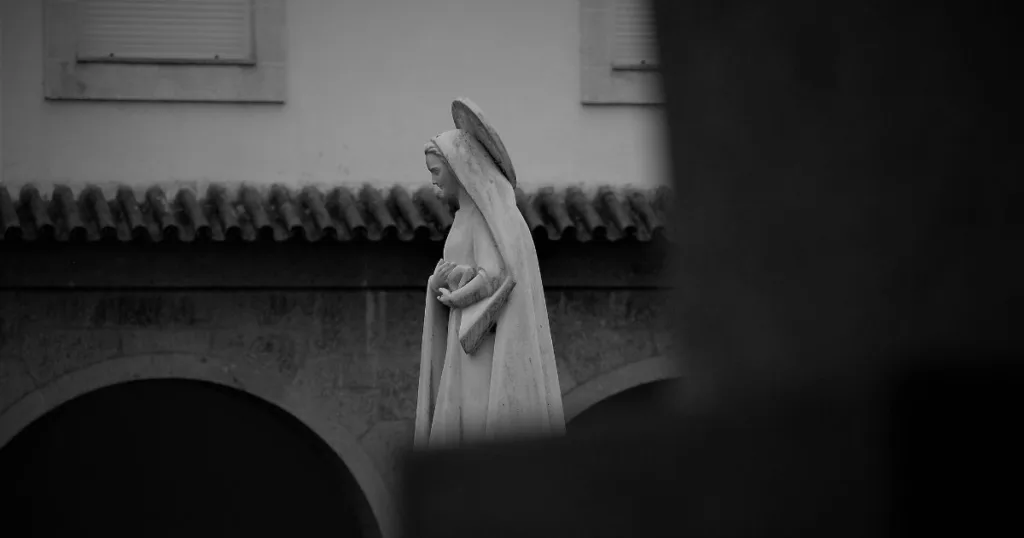
Why Portugal is famous in the world of football?
Portugal’s fame in football can be attributed to a combination of historical factors, remarkable talent, and passionate support for the game. Football is not just a sport in Portugal; it’s a deeply ingrained part of the national identity and culture. Here are several reasons why Portugal is famous in the world of football:
1. Rich Football History
Football was introduced to Portugal in the late 19th century, and the sport quickly gained popularity. The country has a long tradition of competitive football, with its domestic league, the Primeira Liga, being established in 1934. Clubs like Benfica, Porto, and Sporting CP have not only dominated domestically but have also made significant impacts in European competitions, winning prestigious titles such as the UEFA Champions League (formerly the European Cup) and the UEFA Europa League (formerly the UEFA Cup).
2. Legendary Players
Portugal has produced some of the world’s most talented and celebrated footballers. Eusébio, known as the “Black Panther,” was one of the first to put Portugal on the global football map with his incredible prowess and goal-scoring ability, particularly highlighted during the 1966 FIFA World Cup where he was the tournament’s top scorer. In more recent times, players like Luís Figo, Rui Costa, and Cristiano Ronaldo have become international icons. Cristiano Ronaldo, in particular, is often considered one of the greatest footballers of all time, known for his extraordinary skill, work ethic, and consistency at the highest level of play.
3. International Success
Portugal’s national team, “A Seleção,” has enjoyed considerable success on the international stage, which has further enhanced the country’s reputation in football. Although Portugal had a reputation for underachieving in major tournaments historically, this changed dramatically in the 21st century. The pinnacle of Portugal’s international success came in 2016 when they won the UEFA European Championship, and they followed this up by winning the inaugural UEFA Nations League in 2019. These victories solidified Portugal’s position as a top footballing nation.
4. Passionate Fans and Vibrant Football Culture
Football is deeply rooted in Portuguese culture, with a significant portion of the population actively supporting local and national teams. The intense rivalry between the top clubs, particularly those of Lisbon and Porto, contributes to a vibrant football culture characterized by passionate supporters, lively stadiums, and a strong sense of community and national pride. This fervent support helps nurture and sustain the sport’s popularity and development at all levels.
5. Development and Training Infrastructure
Portugal has invested significantly in football development programs and training facilities. The country is renowned for its youth academies and football schools, which have produced numerous talented players who have succeeded both domestically and internationally. Clubs like Sporting CP are famous for their youth academies, which have produced world-class talents such as Cristiano Ronaldo, Luís Figo, and João Félix. This emphasis on developing and nurturing young talent ensures a continuous supply of skilled players to the national team and clubs.
In conclusion, Portugal’s fame in football is a result of its rich history, legendary players, international success, passionate fans, and strong development infrastructure. These elements combine to make football an integral part of Portuguese culture and identity, and they ensure that the country continues to be a significant force in the world of football.
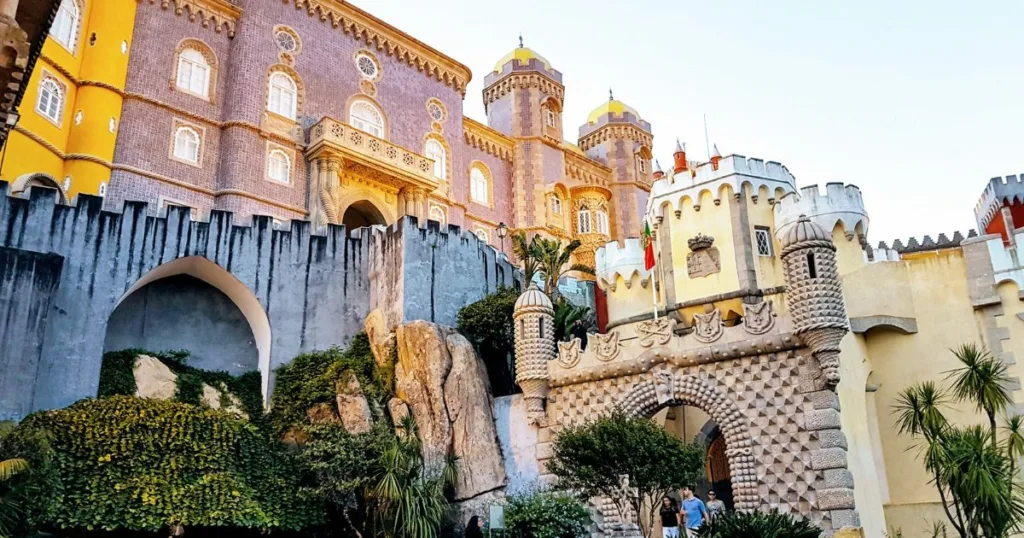
Closing Thoughts
Portugal, with its diverse landscapes and rich cultural tapestry, promises a journey of discovery. Each destination offers a unique perspective on the country’s heritage, from its ancient roots to its contemporary pulse. As travellers explore these ten must-visit places, they will find that Portugal’s true magic lies in the warmth of its people, the depth of its history, and the unparalleled beauty of its natural landscapes. Whether you’re seeking adventure, relaxation, or cultural enrichment, Portugal welcomes you with open arms and a story at every turn.
42 Most Beautiful Places In The World To Visit 2023
15 Best Travel Backpacks- How To Choose 2023
Aiman Khalid
I’m Aiman Khalid, your dedicated SEO Analyst. With a passion for digital marketing and a keen eye for optimizing online experiences, I’ve made it my mission to help businesses thrive in the digital realm. My journey into the world of SEO began with a fascination for search engines and their algorithms, and since then, I’ve honed my skills to become a seasoned professional. Armed with years of experience, I specialize in crafting SEO strategies that not only boost search engine rankings but also drive tangible results, such as increased website traffic and conversions. I’m here to demystify the world of SEO and empower your online presence, one keyword at a time.
-
© Copyright 2020 | www.pairstravel.com
